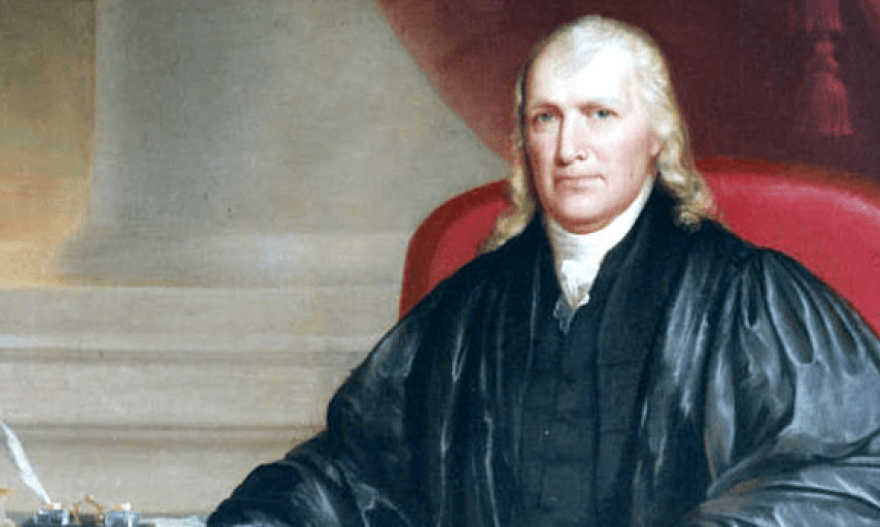On Nov. 30, 1804, the U.S. Senate opened its only impeachment trial against a U.S. Supreme Court justice. The House of Representatives’ charges against Associate Justice Samuel Chase stated that his partisanship affected his decisions. While Chase narrowly escaped removal from the court, his trial placed the court’s impartiality into question.
Between his appointment in 1796 and his impeachment in 1804, the Federalists and the Democratic-Republicans fought bitterly over the role of the federal courts. While the judicial branch is considered impartial, the Constitution grants Congress power to adjust the federal court system. Federalists, like George Washington and John Adams, favored stronger federal courts, and in 1789 they provided for a federal system comprised of a Supreme Court and district and circuit courts. In 1801, on the eve of losing power to the newly elected Democratic-Republican, Thomas Jefferson, the Federalists passed legislation expanding the federal courts. In 1802, the Democratic-Republicans repealed it and returned the federal courts to their pre-1801 size.
During this turbulent time, Chase came under fire. Jefferson, who had a particular animus for the Court, challenged members of his party to consider impeachment. In late 1803, the House drew up eight articles of impeachment against Chase, ranging from trial procedures to political libel. In March 1804, the House voted to impeach, and on Nov. 30 the Senate trial began. For the intervening months, Chase’s impeachment served as a proxy for newspaper editors and elected officials to express deeper political divides.
The Senate chose not to remove Chase, arguing that to do so based on the quality of his judging would damage the impartiality of the Supreme Court. Since 1804, no other Supreme Court justice has been impeached, and all impeachments of federal judges have been on grounds of legal or ethical misconduct, not judicial performance.


